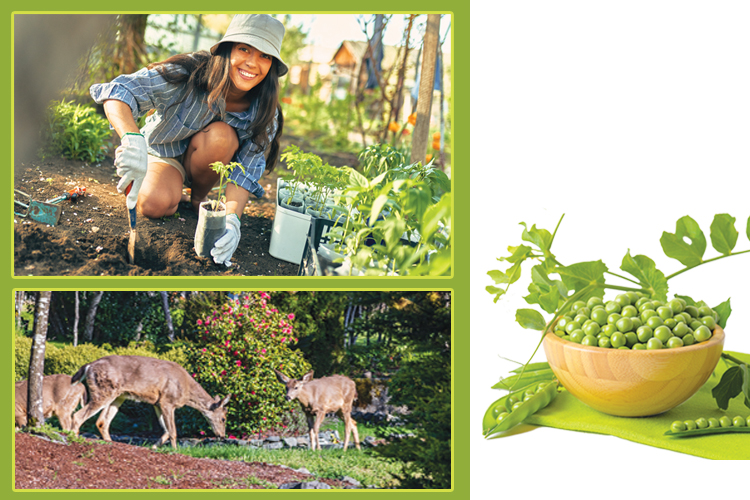
As the weather warms up, it may cause us to become impatient and want to start planting everything right away. While early-spring crops are fine, try to resist putting in tomatoes, cucumbers, and jalapeños, as warmer soil temperatures mean an easier transition for plants from inside (your home or nursery) to the garden. Also, hold off on putting down mulch until air temperatures are consistently in the 50’s or 60’s. This will allow the soil to warm quicker, promoting optimal plant growth.
Remember that proper watering will support nutrient uptake, and ensure your soil has proper nutrients in addition to consistent water. If you plant your garden in the same place year after year, it is likely that the soil will require supplemental fertilizing. Organic forms of fertilizer include: pulverized oyster shells, manure, and compost. Some of the best compost can come from your own kitchen scraps! Avoid adding unwanted seeds, meat and fat or any other animal products into your compost pile.
As you prepare your garden space, evaluate what might’ve changed since last year. Perhaps you’re in a neighborhood that’s recently become home to deer, as is happening in suburban areas throughout the country. There are a variety of ways to keep deer away from your prized gardens. Each method’s rate of success varies; for greatest protection, try a couple of options:
- Irish Spring soap : Deer supposedly dislike the smell. I put a bar near some tasty bulbs in the early spring, and they were left alone
- Deer repellent : Look for an organic option that combines spices and dried blood to encourage deer to steer clear. The spices tend to be pleasant to human noses, and organic options will be safe for children and pets. The longest-lasting products will be granular or pelletized, and if it’s marketed to work even under snow, it should work in your mulched beds
- Physical barriers : Deer can easily jump fences, even those as high as six feet. They are more likely to avoid jumping where they cannot see or sense the landing, so if you use border plantings along with a tall fence, it could be a winning combination. Otherwise, you may need to use netting or fencing immediately surrounding the garden. Make sure it’s too tall for the deer to reach over and that there is a small enough internal space they can’t jump inside. Be sure to secure all netting and fencing to avoid hurting any deer that try to get through.
With a bit of planning and maintenance, you can be assured that your garden will be healthy and prolific all season long.












 20 lucky winners will win $500 each in prizes totaling $10,000.
20 lucky winners will win $500 each in prizes totaling $10,000. 